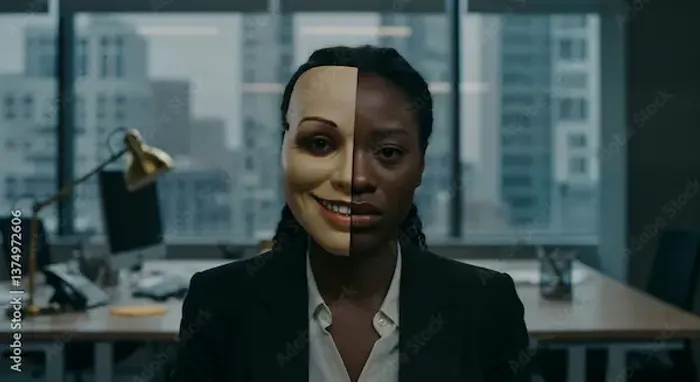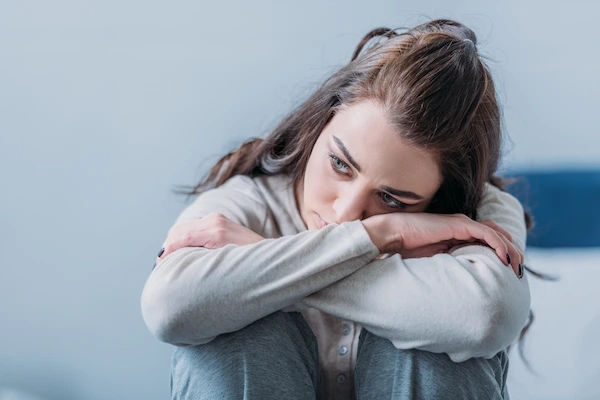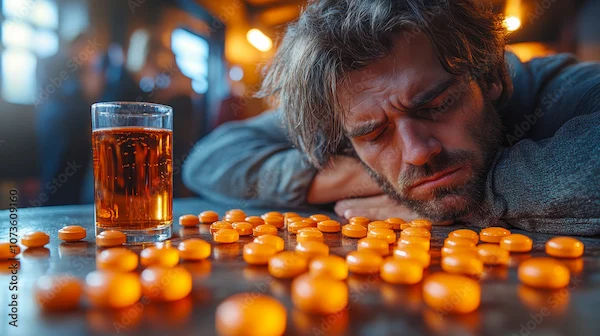Guide to Know Depression Fight Depression
Know what depression is, what it is, the difference from daily blues, key symptoms, strategies to fight back and when to seek professional help and more.

Written by Dr. Rohinipriyanka Pondugula
Reviewed by Dr. M L Ezhilarasan MBBS
Last updated on 13th Jan, 2026

Introduction
Depression is more than a passing feeling of sadness; it's a complex and serious medical condition that affects millions worldwide. To effectively fight depression, you must first know depression, understand its nuances, recognise its signs, and comprehend its underlying causes. This guide is designed to be your ally in that journey. We will move beyond simple definitions and explore an actionable pathway from awareness to management. Think of this not as a list of symptoms to fear, but as a map that empowers you to navigate the challenges of depression. We'll cover everything from the biological mechanisms at play to the daily strategies that can help you reclaim your life. By equipping yourself with knowledge, you transform the fight from a desperate struggle into a strategic, winnable battle.
What is Depression? More Than Just Sadness
Depression, clinically known as Major Depressive Disorder (MDD), is a common but serious mood disorder. It causes severe symptoms that affect how you feel, think, and handle daily activities, such as sleeping, eating, or working. To know depression is to understand that it's not a character flaw or a sign of personal weakness. It is a medical condition with psychological, social, and biological origins. The World Health Organisation (WHO) identifies depression as a leading cause of disability globally, highlighting its significant impact on individuals and society. Recognising it as a legitimate health issue is the first step toward effective management and reducing the stigma that often surrounds it.
Consult a Top Psychiatrist for Personalised Advice
Clinical Depression vs. Everyday Blues: Knowing the Difference
It's crucial to distinguish between temporary sadness and clinical depression. Everyone feels down or sad occasionally, usually in response to a specific event like a disappointment or a loss. This "everyday blues" typically passes with time and support. Clinical depression, however, is persistent. Its symptoms last for at least two weeks and are severe enough to interfere with your ability to function. The key differentiator is duration, intensity, and the presence of a cluster of symptoms, not just one or two. While sadness is an emotion, depression is a state of being that colours every aspect of life.
The Neurobiology of Depression: A Chemical Imbalance Explained
At its core, depression involves changes in brain function and structure. While the classic explanation points to a
"chemical imbalance" of neurotransmitters like serotonin, norepinephrine, and dopamine, modern science shows it's more complex. It also involves nerve cell connections, neural circuits, and the brain's stress response system. Chronic stress can lead to inflammation and even reduce the size of the hippocampus, a brain area essential for memory and emotion. Knowing this biological basis helps fight the harmful misconception that depression is "all in your head" in a dismissive way. It is a physical illness of the brain, warranting medical attention just like diabetes or heart disease.
Recognising the Enemy: Key Symptoms to Know
A critical part of the battle is accurate identification. Knowing the symptoms of depression allows for early intervention. These symptoms must be present nearly all day, nearly every day, for at least two weeks.
Emotional and Psychological Symptoms
The emotional toll of depression is profound. It's characterised by a persistent sad, anxious, or "empty" mood. Many describe it as a feeling of numbness or apathy. Key psychological signs include:
- Loss of interest or pleasure in hobbies and activities once enjoyed (anhedonia).
- Feelings of hopelessness or pervasive pessimism.
- Irritability, frustration, or restlessness, even over small matters.
- Feelings of guilt, worthlessness, or helplessness.
- Difficulty thinking, concentrating, or making decisions.
Physical Symptoms of Depression
Depression isn't just a mental experience; it has tangible physical manifestations that are often overlooked. These can
include:
- Significant changes in appetite or weight (either loss or gain).
- Sleep disturbances—this could be insomnia (difficulty falling or staying asleep) or hypersomnia (sleeping too much).
- Fatigue, low energy, and a constant feeling of being "slowed down."
- Unexplained aches and pains, headaches, or digestive problems that don't ease with treatment.
Behavioural Changes and Social Withdrawal
As the internal symptoms intensify, they inevitably affect behaviour. A person fighting depression may:
- Withdraw from social activities, friends, and family.
- Neglect responsibilities at work, school, or home.
- Move or speak more slowly than usual.
- Exhibit agitation, such as pacing or hand-wringing.
Your Arsenal for the Fight: Proven Treatment Pathways
Knowing you have depression leads to the most important step: seeking effective treatment. Fighting depression successfully almost always requires professional intervention. The two cornerstone treatments are psychotherapy and medication.
Psychotherapy: Rewiring Thought Patterns
Psychotherapy, or "talk therapy," is highly effective. Cognitive Behavioural Therapy (CBT) is one of the most common
and evidence-based approaches. It helps individuals identify, challenge, and change distorted thought patterns and behaviours that contribute to their depression. Another effective form is Dialectical Behaviour Therapy (DBT), which incorporates mindfulness and distress tolerance skills. Therapy provides practical tools to manage symptoms and build resilience.
Medication: Correcting Chemical Imbalances
Antidepressants are medications that work by modifying the brain's chemistry. They are not "happy pills" but rather tools that can help correct the underlying neurobiological issues, making it easier for individuals to engage in therapy and daily life. Selective Serotonin Reuptake Inhibitors (SSRIs) are often a first-line treatment. It's crucial to understand that finding the right medication and dosage can take time and requires close collaboration with a doctor.
The Power of Combined Treatment
For moderate to severe depression, research consistently shows that a combination of psychotherapy and medication is more effective than either treatment alone. While medication addresses the biological components, therapy equips you with the skills to manage the psychological and behavioural aspects, creating a comprehensive approach to fight depression.
The Daily Battle: Self-Help Strategies to Fight Depression
Alongside professional treatment, daily self-care strategies are vital weapons in your arsenal. These are not cures but can significantly alleviate symptoms and improve your quality of life.
Lifestyle Adjustments: Diet, Exercise, and Sleep
- Exercise: Regular physical activity, even a daily 30-minute walk, is a powerful antidepressant. It releases endorphins
and other neurochemicals that enhance well-being. - Nutrition: A balanced diet rich in fruits, vegetables, and omega-3 fatty acids supports brain health. Avoiding processed
foods and excess sugar can help stabilise mood. - Sleep Hygiene: Prioritising sleep is non-negotiable. Aim for 7-9 hours of quality sleep by maintaining a consistent schedule and creating a restful environment.
Building a Routine and Setting Small, Achievable Goals
Depression often dismantles structure. Actively building a gentle daily routine can provide a sense of predictability and
control. The key is to start small. Instead of "clean the entire house," a goal could be "wash the dishes." Achieving these
tiny goals provides a sense of accomplishment and can slowly rebuild confidence.
When to Seek Professional Help: A Critical Step
While self-help strategies are beneficial, they are not a substitute for professional care. It is essential to seek help if:
- Your symptoms persist for more than two weeks.
- Your mood significantly impacts your work, relationships, and overall health.
- You have thoughts of harming yourself or others.
If you recognise these signs in yourself or a loved one, consulting a professional is the most courageous step you can take. You can book a confidential online consultation with a qualified psychiatrist or therapist on Apollo24|7 to discuss your concerns and explore a path forward. For a comprehensive assessment, your doctor may recommend specific tests to rule out other conditions. Apollo24|7 offers convenient home collection for relevant tests, such as thyroid panels or vitamin D levels.
Conclusion
The journey to know depression and fight depression is undeniably challenging, but it is a journey you do not have to take alone. This guide has armed you with the essential knowledge to understand the enemy and the tools to combat it. Remember, recovery is not a linear process; it has its ups and downs. The goal is not to never feel sad again, but to build the resilience and skills to manage these feelings effectively. By acknowledging the problem, seeking professional support, and implementing daily strategies, you are taking powerful, proactive steps toward reclaiming your well-being. The fight begins with knowledge and is won through consistent, compassionate action. Start today by reaching out for the support you deserve.
Consult a Top Psychiatrist for Personalised Advice
Consult a Top Psychiatrist for Personalised Advice

Dr. Debdatta Pati
Psychiatrist
18 Years • MBBS, DPM, MD (PSYCHIATRY)
Kolkata
MCR SUPER SPECIALITY POLY CLINIC & PATHOLOGY, Kolkata

Dr. Ankit Halder
Psychiatrist
7 Years • MBBS,MD(PSYCHIATRY)
Kolkata
Serenity Mindcare (A Neuropsychiatry Clinic), Kolkata

Dr Rohit Ranjan
Psychiatrist
10 Years • MBBS, MD (Psychiatry)
Bengaluru
Apollo Medical Center, Marathahalli, Bengaluru
(25+ Patients)

Dr. Kommoju Venkata Eswar
Psychiatrist
8 Years • MBBS, MD Psychiatry
Avenue
Wellness Point, Avenue

Dr. Vivek Pathak
Psychiatrist
15 Years • MBBS, MD (Psychiatry)
Noida
𝗗𝗿 𝗞𝗨𝗠𝗔𝗥'𝗦 𝗙𝗔𝗠𝗜𝗟𝗬 𝗖𝗟𝗜𝗡𝗜𝗖 𝗮𝗻𝗱 𝗩𝗔𝗖𝗖𝗜𝗡𝗔𝗧𝗜𝗢𝗡, Noida
(25+ Patients)
Consult a Top Psychiatrist for Personalised Advice

Dr. Debdatta Pati
Psychiatrist
18 Years • MBBS, DPM, MD (PSYCHIATRY)
Kolkata
MCR SUPER SPECIALITY POLY CLINIC & PATHOLOGY, Kolkata

Dr. Ankit Halder
Psychiatrist
7 Years • MBBS,MD(PSYCHIATRY)
Kolkata
Serenity Mindcare (A Neuropsychiatry Clinic), Kolkata

Dr Rohit Ranjan
Psychiatrist
10 Years • MBBS, MD (Psychiatry)
Bengaluru
Apollo Medical Center, Marathahalli, Bengaluru
(25+ Patients)

Dr. Kommoju Venkata Eswar
Psychiatrist
8 Years • MBBS, MD Psychiatry
Avenue
Wellness Point, Avenue

Dr. Vivek Pathak
Psychiatrist
15 Years • MBBS, MD (Psychiatry)
Noida
𝗗𝗿 𝗞𝗨𝗠𝗔𝗥'𝗦 𝗙𝗔𝗠𝗜𝗟𝗬 𝗖𝗟𝗜𝗡𝗜𝗖 𝗮𝗻𝗱 𝗩𝗔𝗖𝗖𝗜𝗡𝗔𝗧𝗜𝗢𝗡, Noida
(25+ Patients)
More articles from Depression
Frequently Asked Questions
1. What are the first small steps I can take if I think I'm depressed?
Start by talking to someone you trust. Then, try to incorporate one tiny positive action into your day, like a 10-minute walk or making a healthy meal. The most important step, however, is to schedule an appointment with a doctor or therapist for a professional evaluation.
2. Can you fight depression without medication?
For mild depression, therapy and lifestyle changes can be very effective. For moderate to severe depression, medication is often a crucial component of treatment as it addresses the biological aspects of the illness. The decision is best made with a healthcare professional based on your specific situation.
3. How long does it take to feel better from depression?
Recovery timelines vary. You might notice some improvement in 2-4 weeks after starting treatment, but it can take several months to feel significant and sustained relief. Patience and consistency with your treatment plan are key.
4. What's the difference between depression and anxiety?
While they often co-occur, depression is primarily characterised by low mood and loss of interest, while anxiety is defined by excessive worry and fear. Both can cause physical symptoms like sleep problems and irritability.
5. How can I help a loved one who is depressed?
Offer non-judgmental support and listen without trying to 'fix' them. Encourage them to seek professional help and offer practical assistance, like helping them schedule an appointment. Most importantly, be patient and stay connected.




